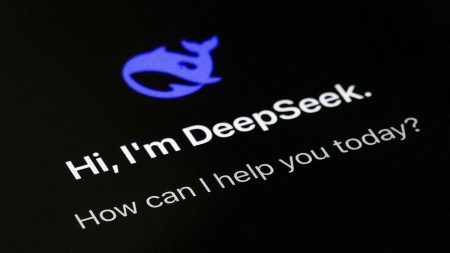In a recent interview with Euronews Next, Sir Tim Berners-Lee, the inventor of the World Wide Web, emphasized that the toxicity prevalent in social media platforms largely stems from their algorithms rather than the individuals posting harmful content. He argued that individuals who craft toxic messages are only a minor component within a larger ecosystem. The algorithmic amplification of such posts significantly contributes to their reach and impact. Berners-Lee illustrated his point by suggesting that social media companies gain greater engagement and capital when they showcase shocking content, which often leads to a cycle of negativity and polarization online. Research has shown that these algorithms not only promote extreme viewpoints but also have cascading effects, influencing youth culture and education by amplifying misogynistic content.
Reflecting on the development of the World Wide Web 35 years after his initial proposal, Berners-Lee expressed mixed feelings about the current state of the internet. He acknowledged that while many aspects align with his original vision of a platform that fosters creativity, the unpredictable, sometimes chaotic ways that people utilize the web were beyond his imagination. He pointed out the significant benefits the web has offered, particularly in educational contexts, while also recognizing the valid concerns of parents regarding their children’s access to potentially harmful social media platforms. Berners-Lee emphasizes that, if certain algorithms prove to cause societal polarization, they should be subject to regulatory oversight to mitigate their negative influences on users, especially young ones.
As he transitions from the World Wide Web Foundation—an organization he co-founded to make the internet more accessible and affordable—Berners-Lee is refocusing his efforts on data protection in the online sphere. After achieving a milestone of 70% connectivity among the global population, he believes the web has strayed from its original purpose of empowering humanity and instead has contributed to centralization and economic shifts that threaten individual data rights. His assessment points to the need for a systemic approach to regain control over personal data and ensure that the web functions in a way that truly benefits individuals.
To address the data protection issues he identified, Berners-Lee has initiated the Solid Project, which aims to create a new layer of protocols that grants users greater control over their data. In this framework, users would have personal IDs that enable them to manage how their data is stored and shared. The concept behind Solid involves using “Pods,” accessible via web browsers, where users can securely keep their private information. This approach is intended to empower individuals in their interactions online, restoring a lost sense of ownership and control over personal data.
Berners-Lee’s vision for Solid extends beyond mere data protection; he seeks to redefine the relationship between technology and users. By asserting that technology should serve humanity, he underscores the need for systems that prioritize user consent and agency in data management. His initiatives are not only aimed at enhancing personal privacy but also at mitigating the adverse societal impacts that arise from the current, often exploitative, data management frameworks employed by many digital platforms. Through the Solid Project and his new company, Inrupt, Berners-Lee aims to facilitate a shift in how individuals engage with their data in the online world.
In conclusion, as the digital landscape continues to evolve, the insights provided by Berners-Lee serve as a compelling reminder of the responsibilities that come with technological advancement. Addressing algorithm-driven toxicity in social media, promoting data protection, and redefining user empowerment are elements central to the ongoing discourse surrounding the Web. By prioritizing the human experience in digital interactions, Berners-Lee not only calls for immediate changes within existing systems but also envisions a future where technology aligns with the values of transparency and human dignity. His journey reflects a commitment to fostering a healthier, more inclusive online environment that respects individual rights and fosters positive societal engagement.














